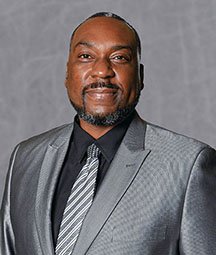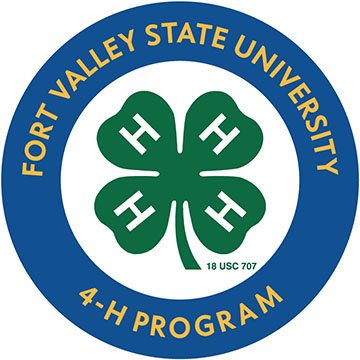Fort Valley State University’s (FVSU) Cooperative Extension 4-H Youth Development Program recently received federal funding to inform students about educational and career opportunities in agriculture.
Six historically Black colleges and universities (HBCUs), including FVSU, are collaborating on a project funded by an $8 million grant from the U.S. Department of Agriculture’s (USDA) Agriculture and Food Research Initiative (AFRI). AFRI is part of the National Institute of Food and Agriculture’s (NIFA) Youth Innovators Empowering Agriculture Across America (YEA) program. The grant’s title is "The USDA-AFRI 1890 4-H Youth Innovators Empowering Agriculture Across America (YEA) Grant Program.”
The grant project is an 1890 Region Multi-State 4-H Program Leaders Collaborative Partnership Grant.
Other participating institutions are Alcorn State University (ASU), Kentucky State University (KSU), Lincoln University of Missouri (LU), North Carolina Agricultural and Technical State University (N.C. A&T) and Prairie View Agricultural and Mechanical University (PVAMU).
Like FVSU, each of the participating institutions have Cooperative Extension 4-H Youth Development Programs and are members of the 1890 Land-grant University system.
The 1890 region is made up of HBCUs receiving land-grant status under the Second Morrill Act of 1890.
FVSU’s 4-H Youth Development Program will receive $475,000 of the grant for the next five years beginning with $75,000 this year and $100,000 annually for the next four years.
Furthermore, the participating schools are also members of the Association of Public Land-grant Universities (APLU) 1890 region. APLU’s membership is composed of land-grant universities in all 50 U.S. states, its territories, Canada and Mexico.
This is the first time that six schools from the APLU’s 1890 region have collaborated on an $8 million grant focusing on 4-H programs.

Woodie Hughes Jr., assistant Extension administrator 4-H leader for FVSU’s Cooperative Extension Program, said the funds will be used to provide numerous activities associated with the 4-H Youth Development Program.
This includes sponsoring 1890 4-H Program Residential Summer Camps at fellow 1890 universities and covering air and ground transportation costs of students to 4-H events. Funds will also provide educational supplies needed for 4-H Positive Youth Development programs involving agriculture and science, technology, engineering and math (STEM).
Additionally, Hughes serves as a co-principal investigator for the project. “It is a true blessing to serve as a co-principal investigator on this 1890 region multi-state grant project. This is part of a nationwide investment by the U.S. Department of Agriculture to teach youths about agricultural career opportunities and I am thankful for this opportunity,” Hughes said.
Dr. Misty Blue-Terry, N.C. A&T’s assistant Extension administrator for youths, families and communities, is the grant’s principal investigator.
“This is a major accomplishment for the 4-H programs in the 1890 region. The outcomes and impacts of this project have the potential to change and enhance the national 4-H program in so many ways,” she said.
“Students selected for the program will have opportunities in five main areas. They will have the opportunity to serve on a national advisory board to support the development of culturally relevant, experiential learning programs for youths of color; receive 4-H positive youth development mentoring for skills including leadership, mental health, critical thinking, problem solving, teamwork and civic engagement; attend leadership institutes, hold internships and be involved with 4-H STEM engagement; and they will receive professional development opportunities. Over the course of the five-year cycle, the program will have a projected direct impact on 3,485 youths and 2,140 adults,” Blue-Terry said.
Hughes also elaborated on the grant’s impact concerning FVSU’s 4-H Youth Development Program.
“The USDA-AFRI 1890 4-H YEA project will afford hundreds of underserved, underrepresented vulnerable 4-H youths a 21st century, 4-H college and career outreach education. These learning opportunities will help them have lifelong success in society and professionally,” he said.
FVSU’s 4-H leader said applying teamwork and using numerous resources such as grant writing can go a long way in helping develop today’s youths.
“The FVSU 4-H Youth Development Program has always played an active role in reaching as many youths as possible. This is one of our main programmatic goals, but this is only made possible by using internal and external collaborations with fellow colleagues and stakeholders working together. Funded grants afford our 4-H students' opportunities that wouldn’t be possible without those funds,” he said.
Hughes added FVSU’s 4-H Youth Development Program will continue to play an active role in seeking collaborations with other land-grant universities on grant projects. This also applies to local, state and federal agencies, private and public industries, and community organizations.
For more information about the FVSU Cooperative Extension 4-H Youth Development Program, contact Hughes at (478) 825-6296 or hughesw@fvsu.edu.

